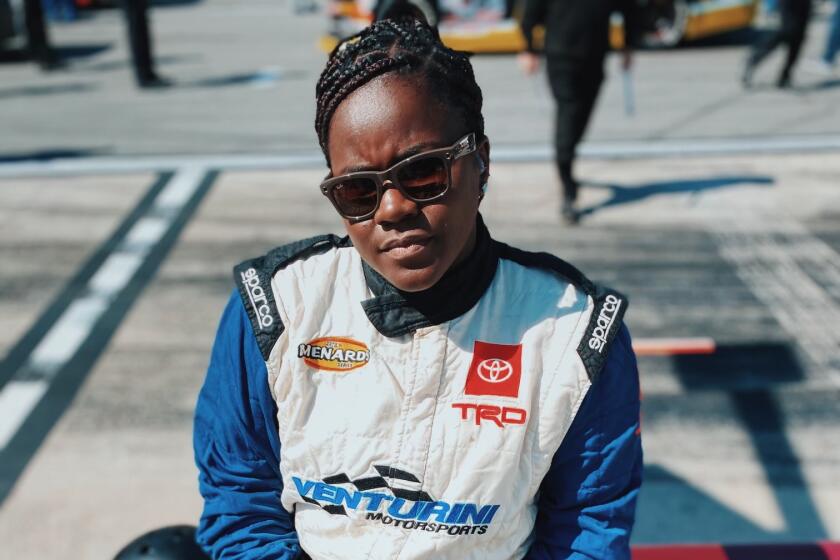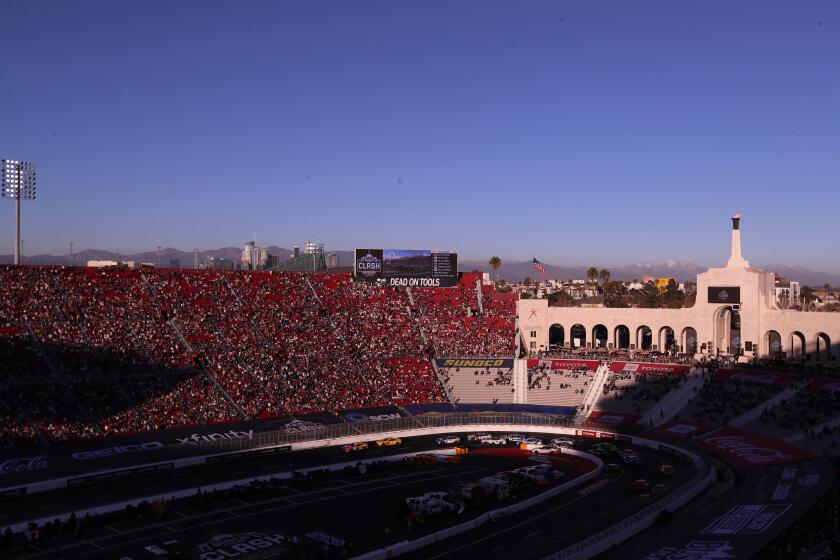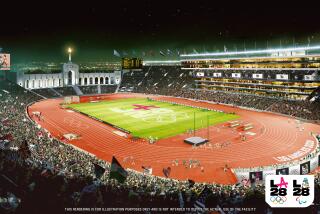Clash at the Coliseum demonstrates that in NASCAR 2.0, racing is just part of show
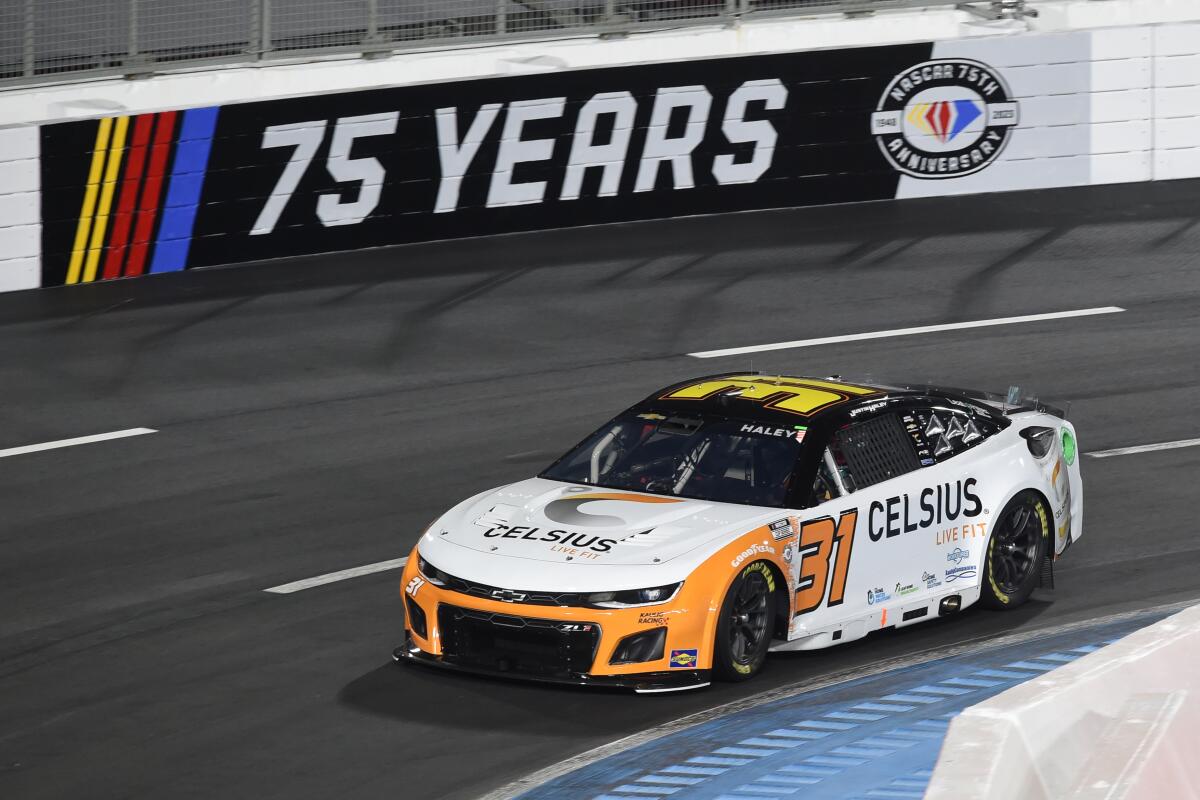
NASCAR is in the midst of its most serious transformation since its top drivers went from moonshiners racing from the law to athletes racing for prizes. Gone are the days when running bumper to bumper over a 2½-mile superspeedway was enough to draw fans.
In NASCAR 2.0, the race is just part of the show. This weekend’s Busch Clash at the Coliseum, the exhibition opener to NASCAR’s 75th season, features a fan fest, VIP packages, two hip hop concerts and Sunday’s 150-lap race around a quarter-mile track.
Justin Haley was fastest at 67.099 mph in Saturday afternoon’s single-car qualifying, which set the field for the four 25-lap heat races Sunday. Those races will determine the lineup for the 27-car race, which will be run under the lights around performances by Cypress Hill and Wiz Khalifa.
“We live in a day and age now where we get bored super easy. You come to events like this, you have to have entertainment,” said driver A.J. Allmendinger, the two-time defending Xfinity Series regular-season champion. “At the end of the day, yeah, the race is probably still the most important thing. That’s why we’re all here.
“But I grew up in open wheel and when we were in Champ Car we always said the race was almost, in a way, secondary to the party. You’ve got to make it an atmosphere. That’s what these Cup races should be. We’ve got to make it fun for people to show up and want to be there and have entertainment throughout the whole weekend.”
NASCAR pit crews are being overhauled as more teams are turning to former college athletes to give teams an edge. The NASCAR race for diversity program has helped.
NASCAR has apparently taken that message to heart. For nearly two decades the series included a 400-mile race on a 1½-mile tri-oval outside Chicago. When it returns to that city in July, the race will be run on a street course, wedged in between four full-length concerts.
“This is a two-day racing and music festival. That’s how we’re promoting it,” said Julie Giese, former president of Phoenix Raceway and the person NASCAR had tapped to put on the Chicago event. “Those concert announcements were really the start of it. So it’s racing. But it’s so much more.
“To me, this is just that continued evolution of where we want to take that race experience. Ultimately, it’s a race weekend, but layering on a lot of other things to allow people to experience it however they want.”
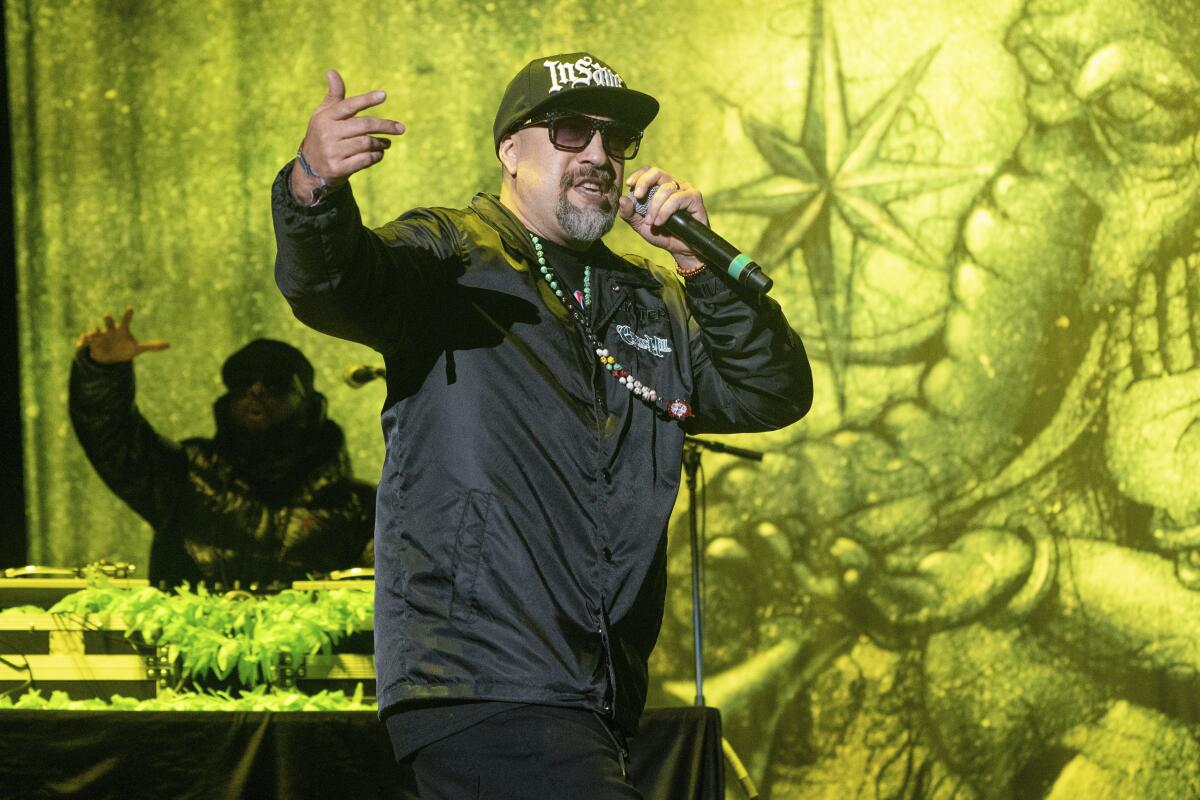
It’s not like NASCAR is broke. The Cup Series’ TV broadcasts averaged 3.7 million viewers per race in 2022, a 24% increase in household share since 2018, and eight of the 36 races sold out. But the series is changing just the same. The introduction of the Next Gen car last year had a positive influence on parity, with 19 drivers registering wins and the average margin of victory just 1.011 seconds.
In addition, the evolution of the NASCAR schedule is continuing. In addition to NASCAR’s first street race in Chicago and the All-Star Race at historic North Wilkesboro (N.C.) Speedway, there will be road-course events in Austin, Texas, in March, in Sonoma, Calif., in June and at Indianapolis and Watkins Glen, N.Y., in August. And there have been ongoing discussions of taking the Cup Series international with England, Mexico and Brazil among the potential locations.
Could the Clash at the Coliseum become a NASCAR Cup Series points race next year with the track at Fontana undergoing reconstruction? It is entertaining enough.
Meanwhile some of the traditional events on the domestic calendar are transitioning as well. Auto Club Speedway’s two-mile banked track in Fontana has been part of the NASCAR schedule since 1997, but after the race there on Feb. 26, the track will be converted to a half-mile oval. And the race will be just one of the things taken into consideration during the redesign.
“There’s a lot of things from a fan element that we’re working on, whether it be the clubs, the fan interaction-type areas, the garage areas, the track itself, trying to figure out what makes the most sense,” said Dave Allen, the speedway’s president. “There’s a lot of pieces that factor into the overall experience. But the fan experience beyond the race track is just as important, if not more important, to make sure that they’re comfortable.”
That fan experience is also why NASCAR, for the second straight year, is kicking off its season with a 37.5-mile sprint around the Coliseum floor rather than the more established Daytona 500.
“It’s what more tracks need to go to,” said driver Ty Dillon, the grandson of legendary team owner Richard Childress and brother of 2018 Daytona champion Austin Dillon. “In this day and age we are addicted to being satisfied all the time, in many ways. We’ve got to step up with the times.
“We not only bring new and different crowds here for the concert, but also NASCAR fans might enjoy the concert. Reaching new fans in a great market, there’s no downside to that. We can show people who we are in the next generation of NASCAR.”
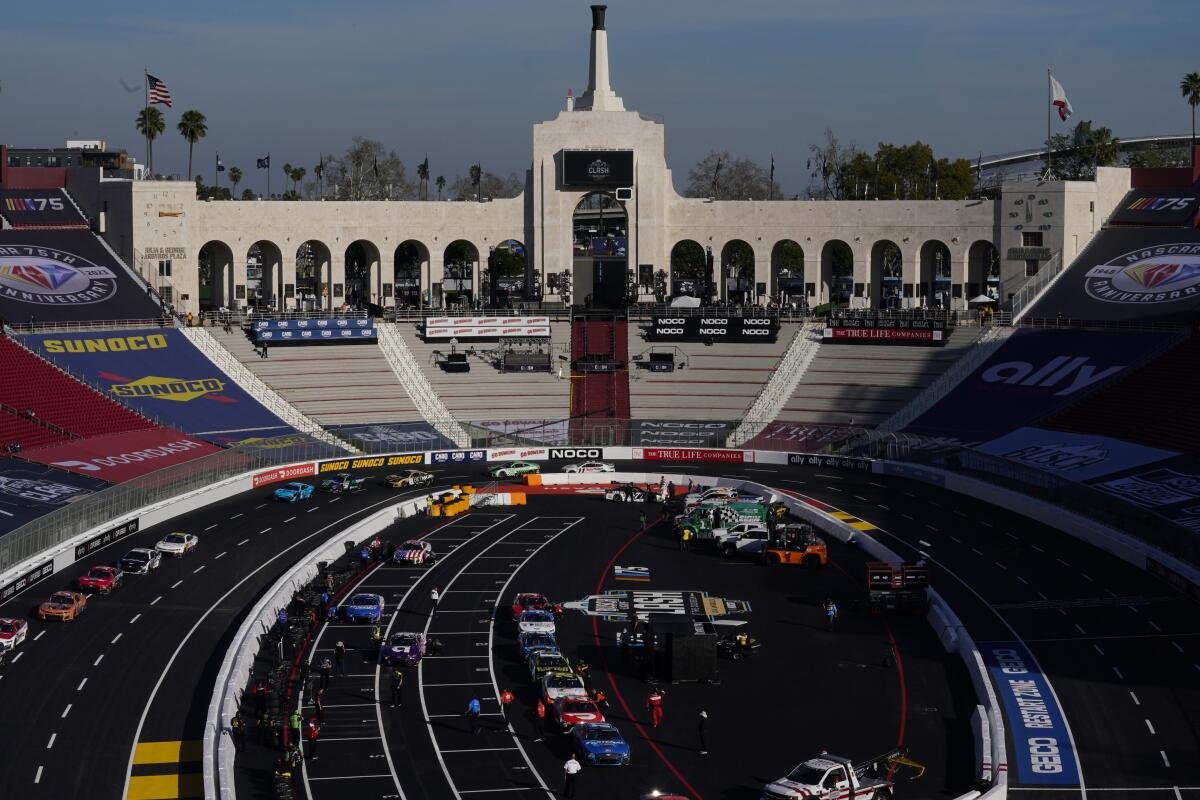
Justin Haley, Kyle Busch top qualifiers
The 36 race cars entered the Coliseum for Saturday’s practice sessions and qualifying through the tunnel in the southwest corner of the stadium, the same one Heisman Trophy winners Mike Garrett, Reggie Bush, Marcus Allen and Gary Beban once used, and the same one Joan Benoit charged down on her way to winning the women’s marathon at the 1984 Summer Olympics.
Only this time the athletes were behind a steering wheel and Haley, with a 13.413-second lap, was fastest in the two-lap single-car qualifying before a sparse crowd at the 100-year-old stadium. He will be on the pole for the first of four heat races Sunday with Kyle Busch, Christopher Bell and William Byron — the next three fastest Saturday — starting first in the other three races.
“Our lap was just dominant,” Haley said.. “I feel pretty confident about where we are. It’s obviously a good place to start the season. Not sure why we’re so good here. I wish I had this much talent at all the races.”

The top five finishers in each of Sunday’s four heats will grab spots in the final. The rest of the 27-car field for the exhibition race will be filled out in two last-chance qualifiers.
“The cool part about this race has nothing to lose, right?” Haley said. “We’re not points racing or anything; just kind of putting all on the line. So it’s definitely a different mentality. And I think the heat race format is cool. I still haven’t lost the heat race, so I’ll try to keep that streak going.
“Tomorrow’s going to be a long day and I’m excited for it.”
More to Read
Go beyond the scoreboard
Get the latest on L.A.'s teams in the daily Sports Report newsletter.
You may occasionally receive promotional content from the Los Angeles Times.

